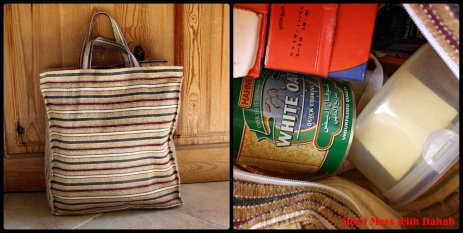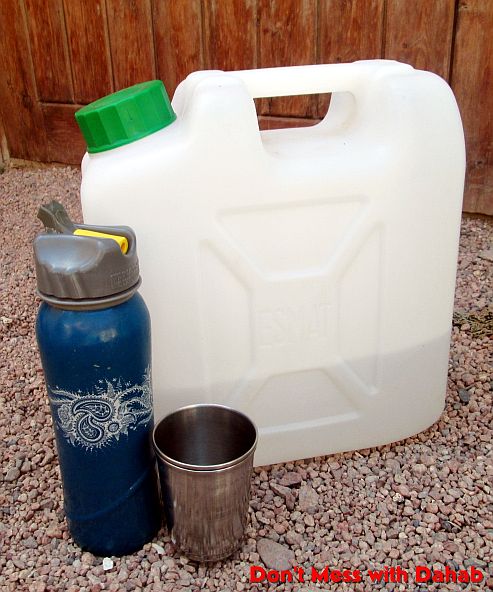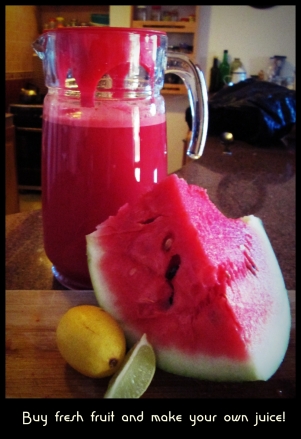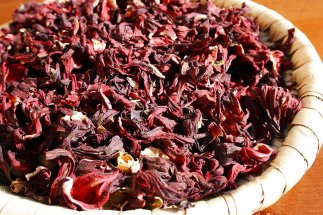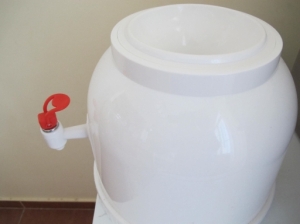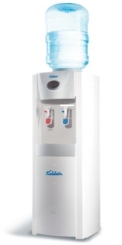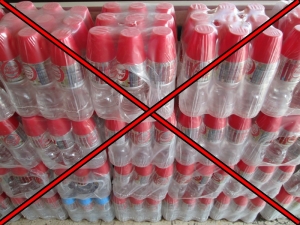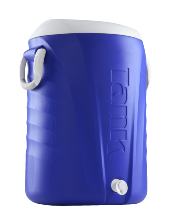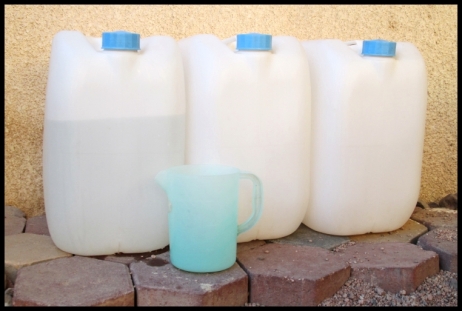So far I’ve focused on REFUSING the single-use plastic bags provided by most shops and using cotton bags instead. I know there are some of you already doing this and others who are working on cultivating this habit – and that takes time. While we continue to REFUSE plastic bags, let’s talk about our other huge plastic waste problem here in Dahab – the plastic water bottles!
A few facts to get us started:
Along with plastic bags, plastic bottles are among the most prevalent sources of pollution found on our beaches.
The extremely slow decomposition rate of plastic bottles leaves them to drift on the ocean for untold years.
When plastics break down, they don’t biodegrade, they photodegrade. This means the materials break down to smaller fragments. These [smaller fragments] readily absorb toxins which contaminate soil, waterways, and animals upon digestion. Source
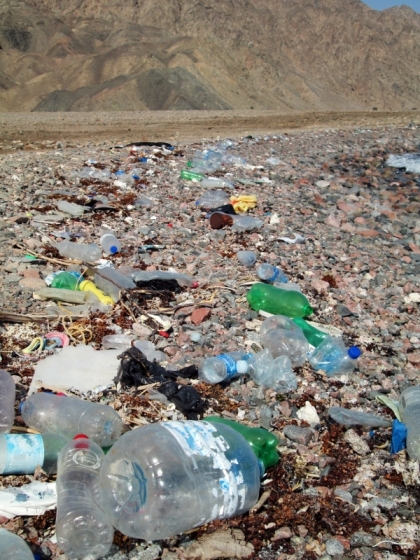
Plastic trash, mostly bottles, washed up on the shore of Nabq Protected Area – just 10 km south of Dahab.
It takes three times the volume of water to manufacture one bottle of water than it does to fill it, and because of the chemical production of plastics that water is mostly unusable.
We [Americans] use 17 million barrels of oil each year just to produce all of those water bottles. To put it in perspective, that’s enough oil to keep a million cars fueled for a whole year! Source
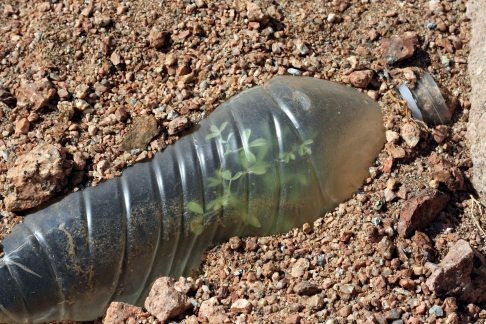
Plastic bottles plague our deserts, too!
FILTERED TAP WATER
I am sure many of us know that drinking bottled water is not the most eco-friendly or healthful habit around and the facts above help to clarify why. It’s common to read on American or European blogs about how practical and economical it is to simply drink tap water and use refillable bottles instead of buying water in plastic bottles. In fact, in Cairo, that is exactly what I did. I did not like the taste (or the price!) of bottled water so we installed a charcoal filter (to get rid of the chlorine that is added during the purification stage) directly to an incoming tap in the kitchen and had clean, tasty water at our disposal whenever we wanted. I filled reusable water bottles to take with me to work and other outings.
In Dahab, however, water is another story! Most of us are ecstatic just to have tap water provided by the city. If we’re lucky, the water comes on a regular basis and we have a large enough water tank to cover our needs until the next delivery. Many residents are still not connected to city water and must call a water truck every couple of weeks to refill their tanks. Water that doesn’t have to be delivered is a convenience that I waited nearly five years for and for which I am very grateful. So the issue of water is a bit more complicated here in the desert.
In theory, the desalinated water provided by the city to the homes of Dahab is drinkable. It has been processed and purified. The problems are with delivery and storage – dirty trucks, pipes, or tanks that render the water unsafe or unhealthy to consume. Therefore, the majority of residents do not drink this tap water, myself included. Even with the filter attached to the main pipe – I have seen our filters dirty with rust!
Two of my goals for this year is to find out the easiest way to test my water and then research the 3- and 5-stage water filtration systems that are sure to make my tap water drinkable.
So until I have more to share about filters, what are our less-plastic or plastic-free options for drinking water here in Dahab? I’ll be discussing those in upcoming posts so stay tuned.
What is your source of drinking water? Do you have a filtration system in place?
LEARN MORE:
After the latest contamination scandal, can you trust your water? (Egypt Independent)
Plastic Water Bottles Causing Flood of Harm to Our Environment (Huffington Post)
The Story of Bottled Water (YouTube)
Refuse ~ Reduce ~ Reuse ~ Recycle
28.533067
34.441614

